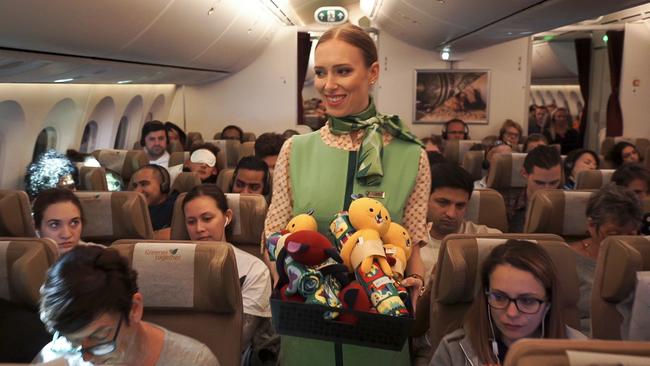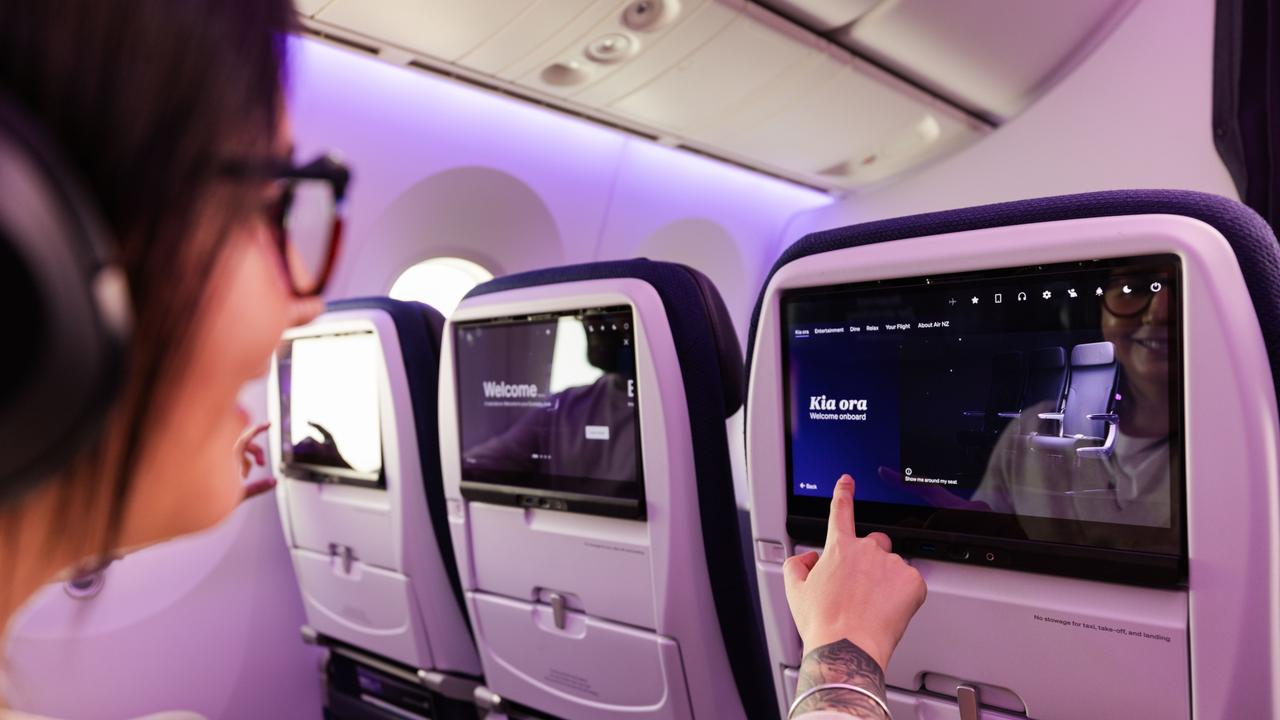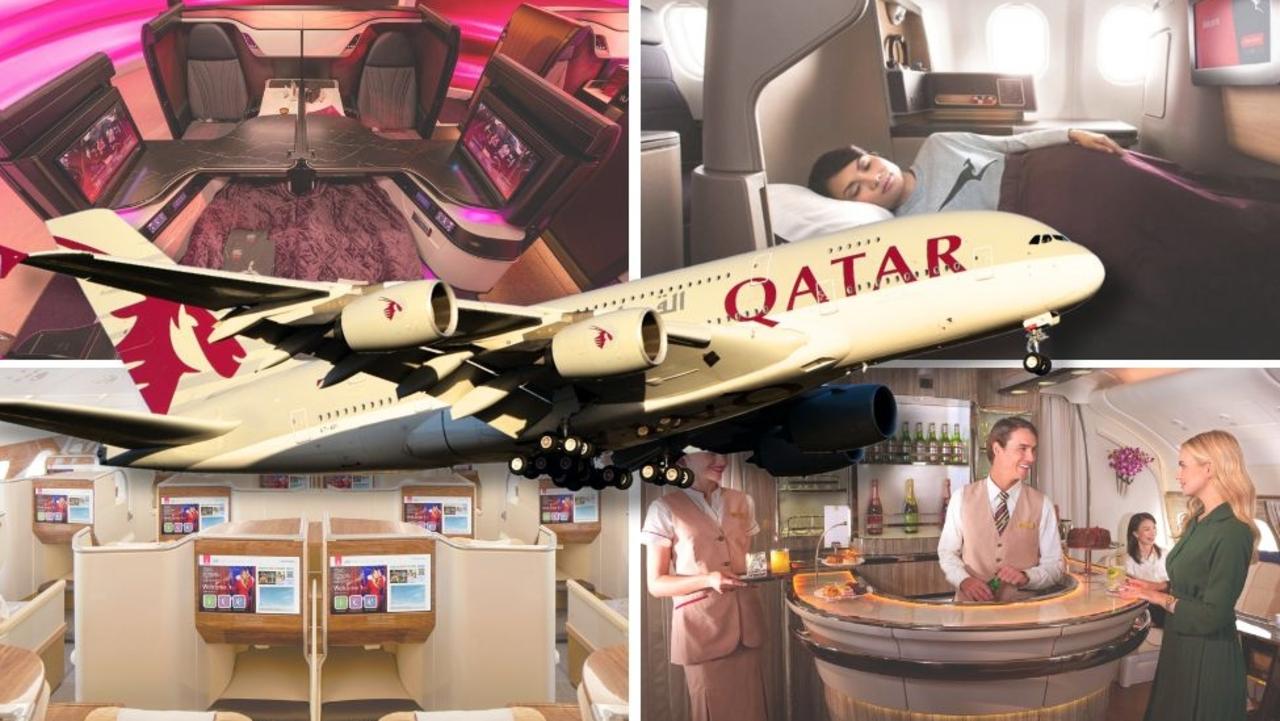Green the new black for growing number of airlines
Environmentally friendly flight operations are the new black, with carriers going plastic-free, waste-free and carbon neutral.

It is no longer enough for airlines to be competitively priced and passenger-focused with a wide network of appealing destinations.
Environmentally friendly flight operations are the new black in aviation, with a growing number of carriers going plastic-free, waste-free and carbon neutral.
Following on from Etihad’s plastic-free flight from Abu Dhabi to Brisbane last month, Qantas went one better this week by staging what it called the world’s first “waste-free” flight.
The Sydney-Adelaide service, which would normally generate about 34kg of rubbish, achieved its goal of sending nothing to landfill in a scenario Qantas hopes to repeat on a regular basis by the end of 2021.
Qantas is far from alone. In January, Portuguese airline Hi Fly operated the first plastic-free flight after declaring it could no longer ignore the impact that single-use plastics had on the environment.
Last year Irish low-cost carrier Ryanair announced its intention to be plastic-free by 2023 and Virgin Australia replaced plastic straws and stirrers with paper and bamboo varieties.
Many other airlines are also actively seeking alternatives to single-use plastics, creating a host of opportunities for companies such as BioPak, which produces compostable food packaging.
Etihad vice-president of guest experience Linda Celestino conceded that supply was one of the major challenges for airlines with enormous orders to fill.
“If suppliers can’t deliver the products we need at an affordable rate, airlines are going to move their business to companies that do support our charter,” Ms Celestino said.
“There’s a growing concern globally and we know that the items we use take thousands of years to decompose.”
Qantas Group executive government and sustainability, Andrew Parker, agreed that the appetite for green products was huge, with the airline currently exploring options for toothbrushes, tubes of toothpaste and amenity kit toiletries. Not only do the items have to be sustainably sourced and produced, they have to be light — so as not to create extra weight on the aircraft.
That usually means no glass products and no metal cutlery other than in first and business class.
But as important as it was to eliminate waste, Mr Parker said fuel remained the biggest environmental challenge facing airlines.
“We’re doing a lot more work on biofuels and I think it’s an area Australia has to worker harder on, including us,” Mr Parker said.
“Waste overall is a genuine environmental impact, plus it speaks to consumers very directly, it’s in front of them.
“But equally we want to do more on emissions reductions overall in addition to what we’re already doing in terms of replacing 747s with 787s, and carbon offsetting.” As one of the first carriers to offer passengers the option of offsetting carbon emissions produced by their flight, Qantas now operated the biggest airline offsetting program in the world.
“About 10 per cent of our customers are voluntarily offsetting on flights which is the highest it’s ever been,” Mr Parker said.
“That’s a big tick for Australia.”




To join the conversation, please log in. Don't have an account? Register
Join the conversation, you are commenting as Logout